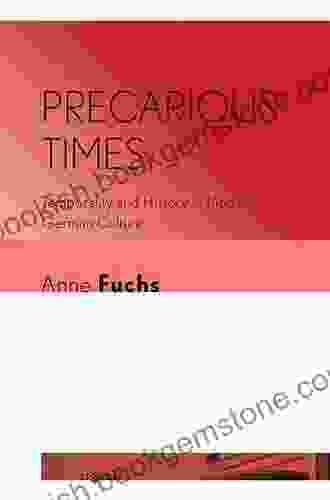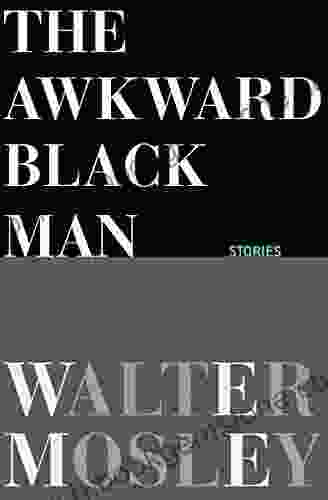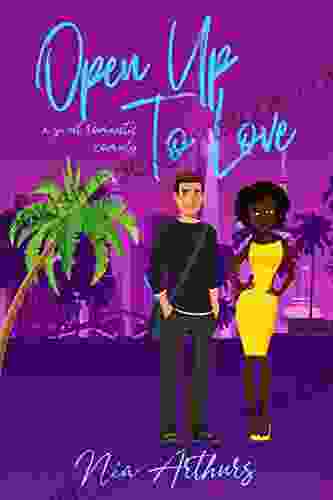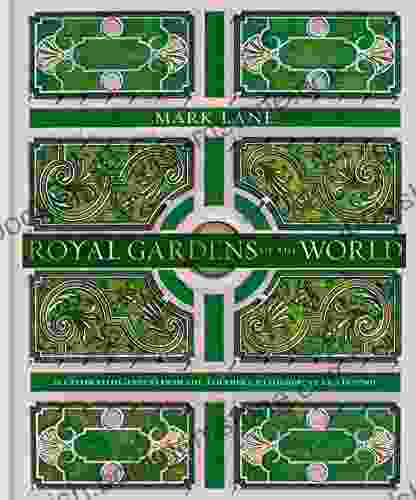Modern German Letters, Cultures, and Thought: A Comprehensive Exploration

5 out of 5
| Language | : | English |
| File size | : | 663 KB |
| Text-to-Speech | : | Enabled |
| Enhanced typesetting | : | Enabled |
| Print length | : | 305 pages |
| Screen Reader | : | Supported |
Modern German letters, cultures, and thought have exerted a profound influence on Western civilization, contributing to the development of modern literature, philosophy, music, and art. This article provides a comprehensive overview of this rich and diverse field, encompassing major literary movements, cultural developments, and philosophical ideas that have shaped German society and thought from the 18th century onwards.
Literary Movements
Sturm und Drang
The Sturm und Drang (Storm and Stress) movement emerged in the late 18th century as a reaction against the Enlightenment's emphasis on reason and order. Sturm und Drang writers celebrated emotion, individualism, and the power of nature. Notable figures of the movement include Johann Wolfgang von Goethe, Friedrich Schiller, and Gotthold Ephraim Lessing.
Romanticism
Romanticism, which flourished in the early 19th century, emphasized imagination, intuition, and the importance of the individual experience. Romantic writers often explored themes of love, nature, and the supernatural. Key Romantic figures include Novalis, Heinrich von Kleist, and E.T.A. Hoffmann.
Realism
Realism, which emerged in the mid-19th century, rejected the idealism of Romanticism and sought to depict life as it truly was. Realist writers often focused on everyday life, social issues, and the experiences of ordinary people. Prominent Realist authors include Theodor Fontane, Gustav Freytag, and Gottfried Keller.
Expressionism
Expressionism, which emerged in the early 20th century, emphasized the subjective experience and the expression of inner emotions. Expressionist writers often employed distorted forms, vibrant colors, and fragmented narratives. Notable Expressionist figures include Franz Kafka, Bertolt Brecht, and Gottfried Benn.
New Objectivity
New Objectivity, which emerged after World War I, rejected the emotionalism of Expressionism and sought to depict reality in a clear and objective manner. New Objectivity writers often explored themes of alienation, urbanization, and the impact of modern technology. Key figures of the movement include Erich Maria Remarque, Alfred Döblin, and Irmgard Keun.
Cultural Developments
The Enlightenment
The Enlightenment was a philosophical and intellectual movement that emphasized reason, science, and progress. During the 18th century, German thinkers such as Immanuel Kant and Gotthold Ephraim Lessing played a major role in shaping the Enlightenment's ideas. The Enlightenment had a profound impact on German culture, promoting education, scientific research, and the development of new ideas.
Classicism
Classicism, which emerged in the late 18th and early 19th centuries, emphasized the ideals of order, balance, and harmony. German classicism was influenced by Greek and Roman literature and art, and sought to create works that were timeless and universal. Prominent Classicist figures include Goethe, Schiller, and Lessing.
Romanticism
Romanticism also had a significant impact on German culture, fostering a love of nature, folk traditions, and the German language. Romantic writers and thinkers such as Novalis and the Brüder Grimm helped to create a new national identity for Germany.
Industrialization and Urbanization
The 19th and 20th centuries witnessed rapid industrialization and urbanization in Germany. These developments led to profound social and cultural changes, including the growth of cities, the decline of traditional rural communities, and the rise of new social classes. Writers and artists such as Heinrich Heine, Thomas Mann, and Bertolt Brecht explored the challenges and opportunities presented by modernity.
Philosophical Ideas
Idealism
Idealism, which emerged in the late 18th century, emphasized the primacy of mind over matter. German philosophers such as Immanuel Kant and Georg Wilhelm Friedrich Hegel argued that reality is ultimately determined by the human mind and its concepts. Idealism had a significant influence on German literature and culture, shaping the way that writers and artists viewed the world.
Materialism
Materialism, which emerged in the 19th century, rejected the idealism of Kant and Hegel and argued that matter is the ultimate reality. German materialist philosophers such as Ludwig Feuerbach and Karl Marx developed theories that sought to explain the social and economic conditions of their time. Materialism had a profound impact on German society and thought, contributing to the rise of socialism and communism.
Existentialism
Existentialism, which emerged in the 20th century, emphasized the importance of individual freedom, responsibility, and choice. German existentialist philosophers such as Martin Heidegger and Karl Jaspers explored the meaning of human existence and the challenges of living in a meaningless universe. Existentialism had a significant impact on German literature and culture, shaping the way that writers and artists grappled with the human condition.
Modern German letters, cultures, and thought have made a significant contribution to world civilization, enriching our understanding of literature, philosophy, and art. The ideas and movements explored in this article continue to shape contemporary German society and thought, and they offer valuable insights into the human condition and the challenges of modern life.
By studying German letters, cultures, and thought, we can gain a deeper understanding of ourselves and the world we live in.
5 out of 5
| Language | : | English |
| File size | : | 663 KB |
| Text-to-Speech | : | Enabled |
| Enhanced typesetting | : | Enabled |
| Print length | : | 305 pages |
| Screen Reader | : | Supported |
Do you want to contribute by writing guest posts on this blog?
Please contact us and send us a resume of previous articles that you have written.
 Best Book
Best Book Page Flip
Page Flip Bookshelf
Bookshelf Literary loom
Literary loom Chapter
Chapter Bookish
Bookish PageTurner
PageTurner Bibliophile
Bibliophile Story
Story Inkwell
Inkwell Bookworm
Bookworm Labyrinth
Labyrinth Plot Twist
Plot Twist Prose
Prose Paperback
Paperback Storyteller
Storyteller Sanctuary
Sanctuary Fiction
Fiction Reading
Reading Chronicle
Chronicle Read
Read Robert M Goldstein
Robert M Goldstein Suzanne Fredericq
Suzanne Fredericq John Wesley Powell
John Wesley Powell Deborah Willis
Deborah Willis Julie Yip Williams
Julie Yip Williams Mary Heron Dyer
Mary Heron Dyer Lou Darvas
Lou Darvas Paula Henriksen
Paula Henriksen Kayla Watkins
Kayla Watkins Nikita Thorn
Nikita Thorn Steve Alpert
Steve Alpert Laylah Roberts
Laylah Roberts Kenan Trebincevic
Kenan Trebincevic Russell Zimmerman
Russell Zimmerman Joel Stratte Mcclure
Joel Stratte Mcclure Robbie Quinn
Robbie Quinn Jubilee Brown
Jubilee Brown Patrick Herrendorf
Patrick Herrendorf Kimberly Smith
Kimberly Smith William Alexander Percy
William Alexander Percy Michael Psellus
Michael Psellus David Roberts
David Roberts Luis Angel Echeverria
Luis Angel Echeverria Philippa Ballantine
Philippa Ballantine Jl Seegars
Jl Seegars Stan Tekiela
Stan Tekiela Odie Hawkins
Odie Hawkins Kelcey Coe
Kelcey Coe Megan Carr
Megan Carr John Thompson
John Thompson Ruby Dixon
Ruby Dixon John Muir
John Muir Warren Dotz
Warren Dotz Margaret C Collier
Margaret C Collier Matt Patterson
Matt Patterson Julia Fowler
Julia Fowler Neil Bimbeau
Neil Bimbeau Manifestation Publishing House
Manifestation Publishing House Norman Bryson
Norman Bryson Sam Crescent
Sam Crescent Maria Augusta Trapp
Maria Augusta Trapp Paige R Penland
Paige R Penland Sonia Moore
Sonia Moore Joy Horowitz
Joy Horowitz Tasha Black
Tasha Black Xander Boyce
Xander Boyce Nancy Princenthal
Nancy Princenthal Roger Cowell
Roger Cowell Plutarch
Plutarch Learning Through Play
Learning Through Play Mike Grist
Mike Grist I C Robledo
I C Robledo Joyce Huber
Joyce Huber Steve Cohen
Steve Cohen John L Turner
John L Turner Neil Fontaine
Neil Fontaine Nicholas Wapshott
Nicholas Wapshott Ulrike Fuchs
Ulrike Fuchs Mark T Conard
Mark T Conard Klas Kristiansson
Klas Kristiansson Margaret Eggleton
Margaret Eggleton Kate Bryan
Kate Bryan Christian Blauvelt
Christian Blauvelt Wallace Terry
Wallace Terry Richard D Fisher
Richard D Fisher Wes Hubert
Wes Hubert W Kamau Bell
W Kamau Bell Marcelo Hernandez Castillo
Marcelo Hernandez Castillo Kim Catron
Kim Catron Joseph Johnson
Joseph Johnson Mark C Childs
Mark C Childs Jodi Bombardier
Jodi Bombardier Victoria Charles
Victoria Charles Simona Merchant Dest
Simona Merchant Dest Nathan Mccall
Nathan Mccall Victor Steffensen
Victor Steffensen Sally Howard
Sally Howard Alyssa Campbell
Alyssa Campbell Christopher Reeve
Christopher Reeve Ari Goldberg
Ari Goldberg Pat Dews
Pat Dews Bwwm Club
Bwwm Club Usman Zafar Paracha
Usman Zafar Paracha Anne H Berry
Anne H Berry Tony Morgan
Tony Morgan Sally Blake
Sally Blake Kristina Harris
Kristina Harris Will Jawando
Will Jawando Jenny Lawson
Jenny Lawson Stephanie Nicole Norris
Stephanie Nicole Norris Matthew Stavros
Matthew Stavros Nick Axel
Nick Axel Tracy Lash Decrosta
Tracy Lash Decrosta Philip Lee
Philip Lee Ben Box
Ben Box Mary Beard
Mary Beard Shelley Shepard Gray
Shelley Shepard Gray Norman Lebrecht
Norman Lebrecht Karl Ove Knausgaard
Karl Ove Knausgaard Katie Dowe
Katie Dowe Jenny Bowen
Jenny Bowen Martina Carracedo
Martina Carracedo Rebecca Kobrin
Rebecca Kobrin Carl E Schorske
Carl E Schorske Steven W Naifeh
Steven W Naifeh Tammy Ruggles
Tammy Ruggles John Wyndham
John Wyndham Bernth Lindfors
Bernth Lindfors Honesty Price
Honesty Price Blair Davis
Blair Davis Scott David Plumlee
Scott David Plumlee Richard Lippe
Richard Lippe Bob Santos
Bob Santos James Ernest Shaw
James Ernest Shaw Peter L Phillips
Peter L Phillips Kerry Bogert
Kerry Bogert Mary Boone
Mary Boone Dakota Krout
Dakota Krout 1st Edition Kindle Edition
1st Edition Kindle Edition Jennifer Wright
Jennifer Wright N K Jemisin
N K Jemisin Noah Hurowitz
Noah Hurowitz W R Tymms
W R Tymms Hope Edelman
Hope Edelman Vowron Prime
Vowron Prime Wesley Gardner
Wesley Gardner Svenja Reidelbach
Svenja Reidelbach Jeff Shaara
Jeff Shaara Steve Glassman
Steve Glassman Shelly Kim
Shelly Kim Tiya Rayne
Tiya Rayne Ketut Suasti
Ketut Suasti Tapirus
Tapirus Johanna Lehner
Johanna Lehner Ashley Jaquavis
Ashley Jaquavis Sawyer Black
Sawyer Black Lauren Scruggs
Lauren Scruggs William Hertling
William Hertling Graham Rowley
Graham Rowley Sosha Davis
Sosha Davis Ellis Cose
Ellis Cose Julia Walker
Julia Walker Pauli Murray
Pauli Murray Luke Chmilenko
Luke Chmilenko Joann Perahia
Joann Perahia Tom Larcombe
Tom Larcombe Giovanni Iannoni
Giovanni Iannoni Didier Ghez
Didier Ghez Shemer Kuznits
Shemer Kuznits Holly Madison
Holly Madison James J Downes
James J Downes Reanne Hemingway Douglass
Reanne Hemingway Douglass Korani Connolly
Korani Connolly Matthew Israel
Matthew Israel Mary Carolyn Waldrep
Mary Carolyn Waldrep Malcolm C Salaman
Malcolm C Salaman Sherryl Woods
Sherryl Woods Timothy S Susanin
Timothy S Susanin David S Luton
David S Luton Joshua James
Joshua James Ed Gillis
Ed Gillis Kait Fennell
Kait Fennell Timothy Brook
Timothy Brook Johno Ellison
Johno Ellison Russell Means
Russell Means Mark Odegard
Mark Odegard Margo Jefferson
Margo Jefferson Lara Quaranta
Lara Quaranta Kindle Edition
Kindle Edition Chika Okeke Agulu
Chika Okeke Agulu Mike Joyce
Mike Joyce Patrick Drazen
Patrick Drazen Tamsin Ley
Tamsin Ley Tom Fay
Tom Fay Katie Middleton
Katie Middleton Stephen Saad
Stephen Saad Rosayra Pablo Cruz
Rosayra Pablo Cruz Dan X Solo
Dan X Solo Taylor Mason
Taylor Mason Robyn Carr
Robyn Carr Jonathan Clements
Jonathan Clements Silvana Paternostro
Silvana Paternostro Eamon Evans
Eamon Evans William W Johnstone
William W Johnstone Daniel Connolly
Daniel Connolly Sharon Mckee
Sharon Mckee Sue Black
Sue Black Sherri Granato
Sherri Granato K Alex Walker
K Alex Walker Joseph Judson Dimock
Joseph Judson Dimock Richard S Dunn
Richard S Dunn Robert Knott
Robert Knott Joyce Roa
Joyce Roa Ton Viet Ta
Ton Viet Ta Svetlana Quindt
Svetlana Quindt Dave Brett
Dave Brett Richard Matheson
Richard Matheson Laurinda Reddig
Laurinda Reddig Stephen Coles
Stephen Coles John Dvorak
John Dvorak Linda Keteyian
Linda Keteyian Vladimir Geroimenko
Vladimir Geroimenko Jonathan D Sarna
Jonathan D Sarna Breanna De Shay
Breanna De Shay Joel Shepherd
Joel Shepherd Sharon Stone
Sharon Stone Tonya Burrows
Tonya Burrows Kim Barker
Kim Barker Emma Dabiri
Emma Dabiri Tim Severin
Tim Severin Philip Ball
Philip Ball K C Mills
K C Mills Lily Fulop
Lily Fulop Shaka Senghor
Shaka Senghor Pero Tafur
Pero Tafur Daniel James Brown
Daniel James Brown Molly Haskell
Molly Haskell Sean Platt
Sean Platt Paul Greenhalgh
Paul Greenhalgh Laura Lee Fritz
Laura Lee Fritz Mary Stuart
Mary Stuart Trevor Carroll
Trevor Carroll Richard Fidler
Richard Fidler Kathy Valentine
Kathy Valentine James Hall
James Hall Robert Evans
Robert Evans Victoria Rivera Mckinley
Victoria Rivera Mckinley Nicole Pivirotto
Nicole Pivirotto Andre Henry
Andre Henry Violet Ramis Stiel
Violet Ramis Stiel Richard Butner
Richard Butner Carly Murden
Carly Murden Neal Adams
Neal Adams Grace Lee Boggs
Grace Lee Boggs 1st Ed 2020 Edition Kindle Edition
1st Ed 2020 Edition Kindle Edition Letitia Shelton
Letitia Shelton Stephanie Mehta
Stephanie Mehta Julia Child
Julia Child Peter Mayle
Peter Mayle Molly Bang
Molly Bang Mladen Sutej
Mladen Sutej Mariam Elias
Mariam Elias Dk Eyewitness
Dk Eyewitness Samra Habib
Samra Habib Marcus Samuelsson
Marcus Samuelsson Sarah Vallance
Sarah Vallance Bill Rumpel
Bill Rumpel Monica Huerta
Monica Huerta Tom Brosnahan
Tom Brosnahan Joan Breton Connelly
Joan Breton Connelly Tanya Talaga
Tanya Talaga Various
Various Matthew Hahn
Matthew Hahn Joe R Lansdale
Joe R Lansdale Mau Kun Yim
Mau Kun Yim Steven G Krantz
Steven G Krantz Sonja B
Sonja B Francis Tipene
Francis Tipene Jeff Mellem
Jeff Mellem Kassia St Clair
Kassia St Clair Mimi Grace
Mimi Grace Neal Stephenson
Neal Stephenson Jesse Thistle
Jesse Thistle Sesali Bowen
Sesali Bowen John Pomfret
John Pomfret John Davidson
John Davidson Nadia Owusu
Nadia Owusu Randi Minetor
Randi Minetor Helm Wotzkow
Helm Wotzkow Cath Caldwell
Cath Caldwell Talk In Italian
Talk In Italian S L Osborne
S L Osborne Ted Bell
Ted Bell Ken Budd
Ken Budd Patty Jansen
Patty Jansen Shaopeng Chen
Shaopeng Chen Lian Quan Zhen
Lian Quan Zhen Marc Cameron
Marc Cameron Michael Oher
Michael Oher Calum Best
Calum Best Kitty Williams
Kitty Williams Lisa Smith
Lisa Smith Steve Gordon Jr
Steve Gordon Jr Yatir Nitzany
Yatir Nitzany Tova Rabinowitz
Tova Rabinowitz Richard Delacy
Richard Delacy William L Fox
William L Fox Derek Baxter
Derek Baxter Regina Clarke
Regina Clarke Robert Finch
Robert Finch Michelle Jackson
Michelle Jackson T Stonefield
T Stonefield Jerzy Kosinski
Jerzy Kosinski 1st Ed 2016 Edition
1st Ed 2016 Edition Julie Beemer
Julie Beemer John Carey Cremony
John Carey Cremony John Paul Stonard
John Paul Stonard Tim Wootton
Tim Wootton Oscar Owen
Oscar Owen Andrew Cunningham
Andrew Cunningham Steve Stevenson
Steve Stevenson Kagan Mcleod
Kagan Mcleod Trova Heffernan
Trova Heffernan Robert Henri
Robert Henri Norman M Shulman
Norman M Shulman Tim Testu
Tim Testu Nicholas Sparks
Nicholas Sparks Christopher Lane
Christopher Lane Nick Barratt
Nick Barratt Cathy Johnson
Cathy Johnson Rayna Denison
Rayna Denison Megan Wells
Megan Wells Mariko Higaki
Mariko Higaki Jessica Glasscock
Jessica Glasscock William Lidwell
William Lidwell Omar Sharif Jr
Omar Sharif Jr Thibault Ehrengardt
Thibault Ehrengardt Robin Rainbow Gate
Robin Rainbow Gate Travis Bagwell
Travis Bagwell Kim Kavin
Kim Kavin Katy Sprinkel
Katy Sprinkel Vaughn Heppner
Vaughn Heppner Taniela Tabu
Taniela Tabu Kathryn Aalto
Kathryn Aalto Tom Cotter
Tom Cotter Meredith Dillman
Meredith Dillman Michael Friel
Michael Friel Sangeeta Prasad
Sangeeta Prasad Delphi Classics
Delphi Classics Javy Lopez
Javy Lopez W Glenn Griffin
W Glenn Griffin Ward Eister
Ward Eister Sergio Toppi
Sergio Toppi Nisha Garg
Nisha Garg Krystyna Chiger
Krystyna Chiger Jim Santos
Jim Santos Toni Morrison
Toni Morrison Paul Thimou
Paul Thimou Kathy Cano Murillo
Kathy Cano Murillo Lisa See
Lisa See Aer Ki Jyr
Aer Ki Jyr Richard W Pointer
Richard W Pointer William Shatner
William Shatner Paul Chiasson
Paul Chiasson Diane Chamberlain
Diane Chamberlain Kim Hutchinson
Kim Hutchinson Robert Rummel Hudson
Robert Rummel Hudson Liz Scheier
Liz Scheier Tony Walsh
Tony Walsh Miranda Bridges
Miranda Bridges Larisa Golubeva
Larisa Golubeva Leo W Chang
Leo W Chang Jim Forest
Jim Forest Sister Souljah
Sister Souljah David J Schmidt
David J Schmidt Larry Taylor
Larry Taylor Will Stovall
Will Stovall Nicole Casey
Nicole Casey Miriam Giguere
Miriam Giguere Lesley Riley
Lesley Riley Sam Shepard
Sam Shepard Patrick Mcgilligan
Patrick Mcgilligan John Donohue
John Donohue Dean Koontz
Dean Koontz Robert Macklin
Robert Macklin Natalie Hodges
Natalie Hodges Harold Green Iii
Harold Green Iii Simon R Green
Simon R Green Kathy Barnette
Kathy Barnette Kathleen Smith
Kathleen Smith Tyora Moody
Tyora Moody Richard J Powell
Richard J Powell Sarah Valentine
Sarah Valentine Ilana Benady
Ilana Benady Ursa Dax
Ursa Dax Patrice Pavis
Patrice Pavis Paul Seydor
Paul Seydor Meir Shalev
Meir Shalev Paul Noble
Paul Noble Anne Manera
Anne Manera Steve Van Beek
Steve Van Beek W David Baird
W David Baird Rachel Shirley
Rachel Shirley Richard Feinberg
Richard Feinberg Peter Bone
Peter Bone Daniel Schinhofen
Daniel Schinhofen Caroline Eden
Caroline Eden Sean Robins
Sean Robins Michael Smith
Michael Smith Q David Bowers
Q David Bowers Richard Ross
Richard Ross Mark Lane
Mark Lane Jessica Fanigliulo
Jessica Fanigliulo Keiko Okamoto
Keiko Okamoto Lynn Garafola
Lynn Garafola Rosemary Mahoney
Rosemary Mahoney Meniere Man
Meniere Man Joel Sonnenberg
Joel Sonnenberg Jo Thomas
Jo Thomas Priscilla Batzell
Priscilla Batzell Emily Byrne Curtis
Emily Byrne Curtis M A Rothman
M A Rothman Sheila Watt Cloutier
Sheila Watt Cloutier Scott Brown
Scott Brown Sarah Abrevaya Stein
Sarah Abrevaya Stein Skip Mort
Skip Mort Theo Hodges
Theo Hodges Martha Hall Kelly
Martha Hall Kelly Charles B Gatewood
Charles B Gatewood Mick Huerta
Mick Huerta Jerry Saltz
Jerry Saltz Lisa Brahin
Lisa Brahin Scape Martinez
Scape Martinez Kale James
Kale James Maureen Hughes
Maureen Hughes Julian May
Julian May Linda Rodriguez Mcrobbie
Linda Rodriguez Mcrobbie Sonia Faleiro
Sonia Faleiro Katharine Branning
Katharine Branning William Evans
William Evans Michael A Hoey
Michael A Hoey Nien Cheng
Nien Cheng Matt Gilbert
Matt Gilbert Tricia Martineau Wagner
Tricia Martineau Wagner Sonja Mejcher Atassi
Sonja Mejcher Atassi David Batchelor
David Batchelor William Gibson
William Gibson Matthew Bourne
Matthew Bourne James Hunter
James Hunter Stefan Pabst
Stefan Pabst Bill Arnott
Bill Arnott Manny Serrato
Manny Serrato Philip Stewart
Philip Stewart W Somerset Maugham
W Somerset Maugham Phil Cleaver
Phil Cleaver Kelly Gay
Kelly Gay Tim Anderson
Tim Anderson Marcy Conway
Marcy Conway Eliot Schrefer
Eliot Schrefer Yuko Green
Yuko Green Lauren Beukes
Lauren Beukes Stephen Kirkpatrick
Stephen Kirkpatrick Marie Louise Gay
Marie Louise Gay Manuel Huitzilli
Manuel Huitzilli Clara Nieto
Clara Nieto Liz Hurley
Liz Hurley Yuliia Pozniak
Yuliia Pozniak James Graham Baker
James Graham Baker James Mcbride
James Mcbride Richard Fleischer
Richard Fleischer Myrnoska Scott
Myrnoska Scott Duncan James
Duncan James Judy Bolton Fasman
Judy Bolton Fasman Lucy Moore
Lucy Moore Michael F Steltenkamp
Michael F Steltenkamp Jeff W Bens
Jeff W Bens Renee Rose
Renee Rose Liz Chaderton
Liz Chaderton Brenda Lyons
Brenda Lyons Tobias Zimmermann
Tobias Zimmermann Lisa Maker
Lisa Maker Philip K Dick
Philip K Dick Elliot Beier
Elliot Beier Ronald Bergan
Ronald Bergan Donna Williams
Donna Williams Paolo Bacigalupi
Paolo Bacigalupi Milind Mulick
Milind Mulick John Lewis Burckhardt
John Lewis Burckhardt Kenneth Laws
Kenneth Laws Katherine Le Kang
Katherine Le Kang Tom Sito
Tom Sito Shlomo Avineri
Shlomo Avineri Insight Guides
Insight Guides Mahi Wasfy
Mahi Wasfy Katherine Addison
Katherine Addison William Carroll
William Carroll Joe Kuster
Joe Kuster Joseph Toone
Joseph Toone Robin Hobb
Robin Hobb Reginald F Lewis
Reginald F Lewis Requiem Scolopendra
Requiem Scolopendra Deaver Brown
Deaver Brown Rebecca Roanhorse
Rebecca Roanhorse Raquel Cepeda
Raquel Cepeda Kristin Harmel
Kristin Harmel Akire C
Akire C Elle Wright
Elle Wright Karma Waltonen
Karma Waltonen Mark Strand
Mark Strand Nathan Riley
Nathan Riley Kenneth Ma
Kenneth Ma Ruben Gallego
Ruben Gallego Kennedy Ryan
Kennedy Ryan Mary Breu
Mary Breu 1st Ed 2019 Edition Kindle Edition
1st Ed 2019 Edition Kindle Edition Stuart Douglas
Stuart Douglas Graham Cole
Graham Cole Oprah Winfrey
Oprah Winfrey Platte Productions Llc
Platte Productions Llc Loung Ung
Loung Ung Christopher Reutinger
Christopher Reutinger Julian Rothenstein
Julian Rothenstein Greg Gutfeld
Greg Gutfeld Russ Howard
Russ Howard Martin Gardner
Martin Gardner Madhushree Ghosh
Madhushree Ghosh Marteeka Karland
Marteeka Karland Charles Ney
Charles Ney Vivian Gibson
Vivian Gibson Daniel Gibbs
Daniel Gibbs Marcos Mateu Mestre
Marcos Mateu Mestre Rem Koolhaas
Rem Koolhaas Yelapa Memo
Yelapa Memo Mary M Lane
Mary M Lane Tricia Rose
Tricia Rose Lincoln Michel
Lincoln Michel Paul Strathern
Paul Strathern Miranda July
Miranda July Rosalind K Marshall
Rosalind K Marshall Ryan Dempsey
Ryan Dempsey Print Replica Kindle Edition
Print Replica Kindle Edition Karen Lewis
Karen Lewis Daniel Silva
Daniel Silva Tanja Jung
Tanja Jung Deborah Fallows
Deborah Fallows Magdalena Matulewicz
Magdalena Matulewicz Sally J Pla
Sally J Pla Nic Oatridge
Nic Oatridge Rick Goldschmidt
Rick Goldschmidt Sharmila Sen
Sharmila Sen Patrice Gopo
Patrice Gopo Laird Barron
Laird Barron Vicki Rozema
Vicki Rozema K Wan
K Wan Alan R Hauser
Alan R Hauser Roger Zelazny
Roger Zelazny Julia Summerfield
Julia Summerfield Stephen King
Stephen King Ruth Reichl
Ruth Reichl Kristina Mcmorris
Kristina Mcmorris Tom Sterling
Tom Sterling Phoenix Grey
Phoenix Grey Diana Kupershmit
Diana Kupershmit Zondervan
Zondervan Yuniya Kawamura
Yuniya Kawamura Yishan Li
Yishan Li Lorrie Morocha
Lorrie Morocha Momtaz Begum Hossain
Momtaz Begum Hossain Vic Shayne
Vic Shayne Tim Moss
Tim Moss Steven Skaggs
Steven Skaggs Bruce Spydar
Bruce Spydar Richard Paul Russo
Richard Paul Russo David Kadavy
David Kadavy Manuel Lima
Manuel Lima 1st Ed 2018 Edition Kindle Edition
1st Ed 2018 Edition Kindle Edition Regine Abel
Regine Abel Kyriacos C Markides
Kyriacos C Markides Marie Mutsuki Mockett
Marie Mutsuki Mockett Azim Nanji
Azim Nanji William C Cline
William C Cline Jonah Mcdonald
Jonah Mcdonald Shani Greene Dowdell
Shani Greene Dowdell Pamela Cutter
Pamela Cutter Rajat Gupta
Rajat Gupta Marcello Di Cintio
Marcello Di Cintio Maria Morera Johnson
Maria Morera Johnson Kindle Comixology
Kindle Comixology Saul Tanpepper
Saul Tanpepper Patti Bellantoni
Patti Bellantoni 1st Ed 2021 Edition Kindle Edition
1st Ed 2021 Edition Kindle Edition Sian Pritchard Jones
Sian Pritchard Jones John Fabian Carlson
John Fabian Carlson Roland L Mcintosh
Roland L Mcintosh David Paleschuck
David Paleschuck Mayukh Sen
Mayukh Sen Nia Arthurs
Nia Arthurs Kevin Henry
Kevin Henry Graeme Swann
Graeme Swann Connie Easton
Connie Easton Kamal Saleem
Kamal Saleem Jean Guerrero
Jean Guerrero Kay Redfield Jamison
Kay Redfield Jamison Mary Matsuda Gruenewald
Mary Matsuda Gruenewald Jon Contino
Jon Contino Lauren Graham
Lauren Graham Nolan Clark
Nolan Clark M C Roberts
M C Roberts Jason A Ramos
Jason A Ramos Joseph Beuys
Joseph Beuys S G Seabourne
S G Seabourne Janice Tingum
Janice Tingum Lindy Viandier
Lindy Viandier David Hopkins
David Hopkins Burst Books
Burst Books Lewis Smile
Lewis Smile Lisa Congdon
Lisa Congdon Monica L Miller
Monica L Miller Margo Bond Collins
Margo Bond Collins Marianna Leivaditaki
Marianna Leivaditaki Bernadette Simpson
Bernadette Simpson Luis J Rodriguez
Luis J Rodriguez Veronica G Henry
Veronica G Henry Patty A Wilson
Patty A Wilson Rough Guides
Rough Guides Jonathan Smidt
Jonathan Smidt Mark Padilla
Mark Padilla Michael R Jackson
Michael R Jackson Candice Marie Benbow
Candice Marie Benbow Donald J Trump
Donald J Trump Renia Spiegel
Renia Spiegel Pilar M Herr
Pilar M Herr Niobia Bryant
Niobia Bryant Ryan Roenfeld
Ryan Roenfeld Megan Marshall
Megan Marshall Brian Kevin
Brian Kevin Tim Gallagher
Tim Gallagher Mimi Thorisson
Mimi Thorisson Nik Mahon
Nik Mahon Mike Lowery
Mike Lowery Vincent Van Gogh
Vincent Van Gogh Naveed Rouhani
Naveed Rouhani Jessica Garrison
Jessica Garrison David Cummings
David Cummings Paul A Moua
Paul A Moua Nicki Thornton
Nicki Thornton Shani Mootoo
Shani Mootoo Walter Mosley
Walter Mosley Don Peri
Don Peri Louis L Amour
Louis L Amour Laura Reiter
Laura Reiter Alicia Beckton
Alicia Beckton Tony Dungy
Tony Dungy William R Forstchen
William R Forstchen Marlena De Blasi
Marlena De Blasi Megan Goldmine
Megan Goldmine Baratunde Thurston
Baratunde Thurston Robert Gottlieb
Robert Gottlieb Robert B Parker
Robert B Parker Miriam F Williams
Miriam F Williams Ping Fu
Ping Fu David Baldacci
David Baldacci
Light bulbAdvertise smarter! Our strategic ad space ensures maximum exposure. Reserve your spot today!
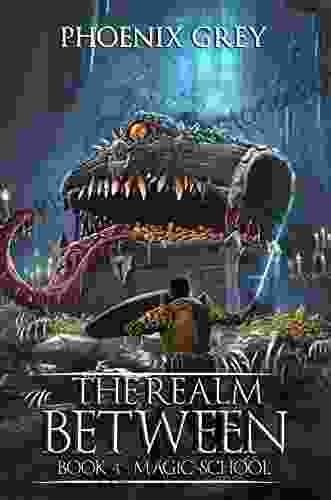
 Cole PowellEmbark on an Epic LitRPG Saga: A Comprehensive Exploration of the Genre's Top...
Cole PowellEmbark on an Epic LitRPG Saga: A Comprehensive Exploration of the Genre's Top... Alexandre DumasFollow ·2.6k
Alexandre DumasFollow ·2.6k Michael SimmonsFollow ·9.4k
Michael SimmonsFollow ·9.4k Ian PowellFollow ·15.8k
Ian PowellFollow ·15.8k Ralph Waldo EmersonFollow ·18.3k
Ralph Waldo EmersonFollow ·18.3k Dwayne MitchellFollow ·8.8k
Dwayne MitchellFollow ·8.8k Marc FosterFollow ·11.9k
Marc FosterFollow ·11.9k Ray BlairFollow ·6.3k
Ray BlairFollow ·6.3k Walt WhitmanFollow ·14.7k
Walt WhitmanFollow ·14.7k

 Marvin Hayes
Marvin HayesBarn Find Road Trip: Unearthing Hidden Automotive...
In the realm of automotive...
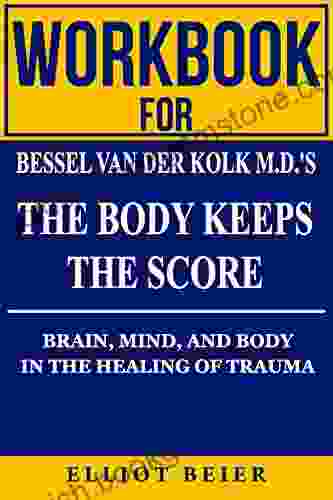
 Griffin Mitchell
Griffin MitchellWorkbook for Bessel van der Kolk's "The Body Keeps the...
Trauma is a pervasive issue that affects...
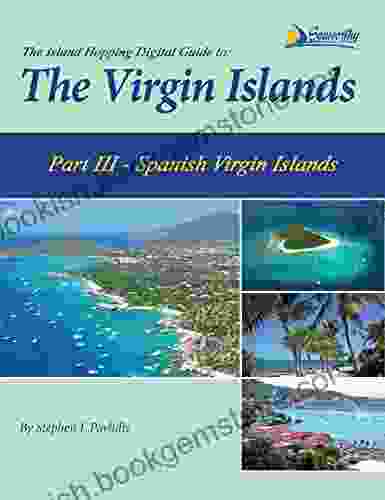
 Kevin Turner
Kevin TurnerExploring the Enchanting Islands of Puerto Rico:...
Embark on an...

 Mike Hayes
Mike HayesDiscover Santa Fe's Enchanting Charm with the DK...
Nestled at the foot of the...
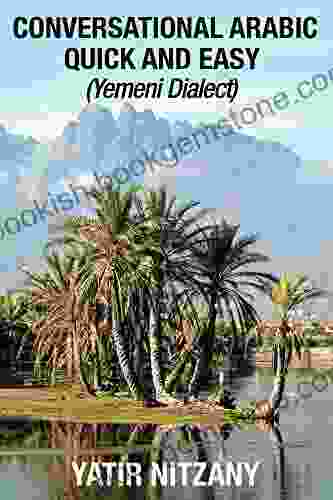
 Colby Cox
Colby CoxConversational Arabic Quick and Easy: Yemeni Arabic...
Welcome to the exciting...
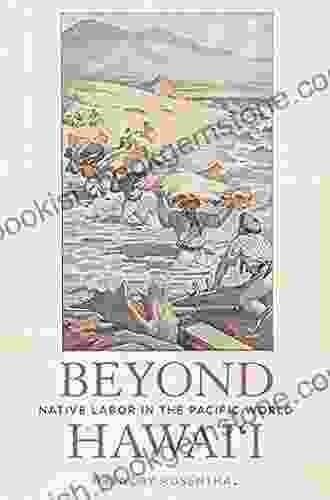
 Davion Powell
Davion PowellNative Labor in the Pacific World: A Comprehensive...
The Pacific World, encompassing the vast...
5 out of 5
| Language | : | English |
| File size | : | 663 KB |
| Text-to-Speech | : | Enabled |
| Enhanced typesetting | : | Enabled |
| Print length | : | 305 pages |
| Screen Reader | : | Supported |


